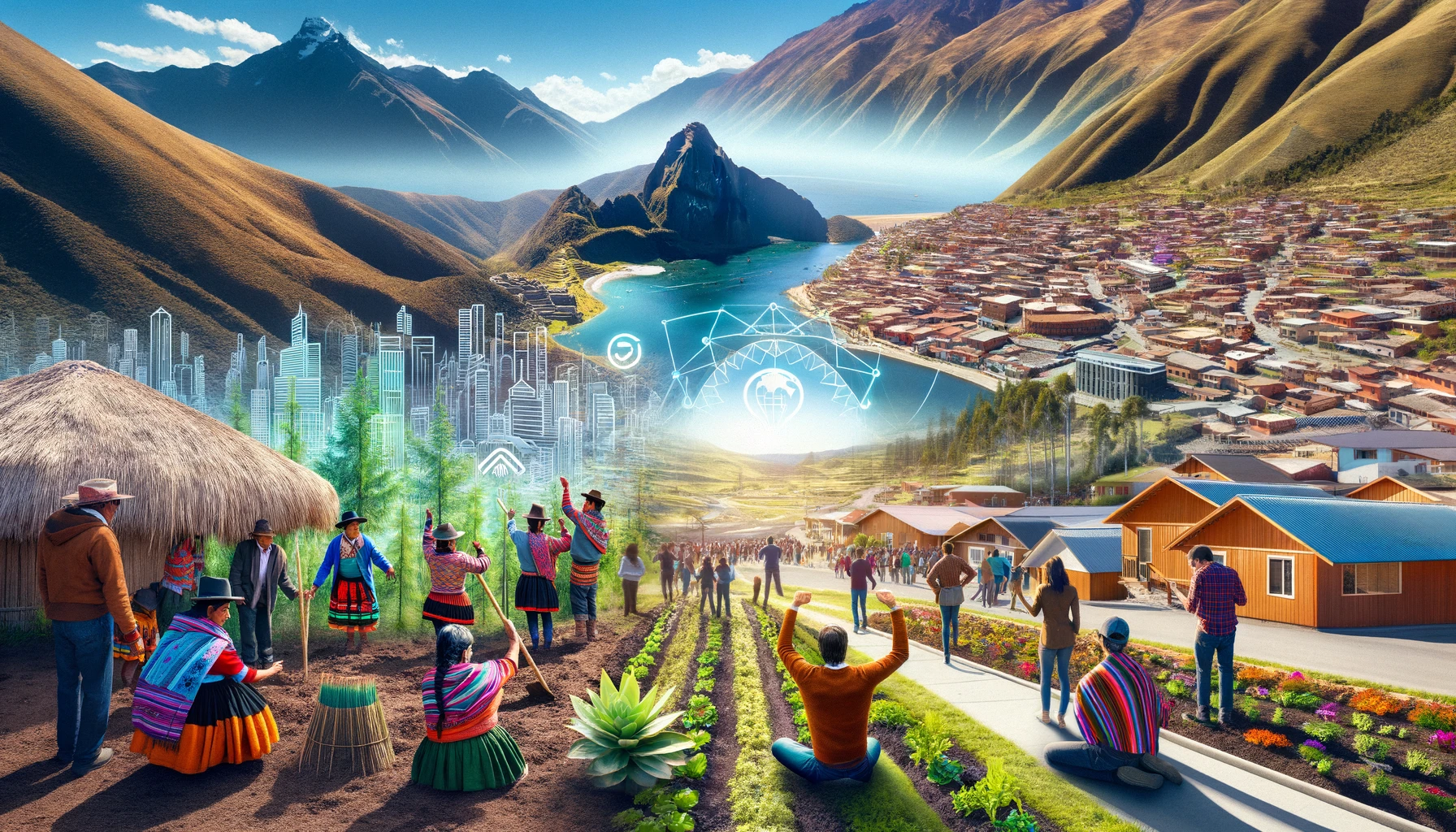In an era where environmental concerns are at the forefront of global discourse, the power of community-driven initiatives cannot be understated. From local clean-up campaigns to global sustainability projects, grassroots movements are proving to be a formidable force in the fight against environmental degradation. This blog post shines a light on the innovative solutions that communities around the world are employing to foster environmental sustainability, demonstrating that when we come together, significant positive change is not just possible—it’s happening.
The Power of Community in Environmental Sustainability
Community-driven solutions to environmental sustainability have a unique strength; they’re rooted in local knowledge and commitment. These initiatives often start small, but their impacts can ripple through communities, inspiring widespread change and setting the stage for larger environmental movements. Whether it’s through urban gardening projects that green our cities, local recycling programs that reduce waste, or educational campaigns that raise awareness about sustainable living, the power of collective action is undeniable.
Innovative Solutions from Around the Globe
The battle against environmental degradation is being fought with innovative solutions worldwide.

Here are some groundbreaking approaches that communities and industries are adopting to pave the way for a more sustainable future:
Ocean Innovation: Tidal and Wave Energy
Harnessing the power of the ocean has emerged as a promising frontier in renewable energy. Tidal power systems leverage the natural ebb and flow of coastal tides, while wave power technologies capture energy from surface waves. These approaches exploit the vast and untapped potential of our oceans, which cover 71% of the Earth’s surface, offering a sustainable alternative to traditional power generation methods.
Biofuels: Turning Waste into Energy
Biofuels represent a significant shift towards renewable energy, utilizing organic materials such as used cooking oil, agricultural waste, and algae. Transforming these sources into biodiesel and bioethanol not only provides a greener alternative to fossil fuels but also leverages waste products, minimizing environmental impact. Algae-based biofuels are particularly noteworthy for their efficiency and sustainability, absorbing CO2 and not competing with food production.
Water Conservation: Smart Irrigation and Desalination
Innovative water conservation technologies, including smart irrigation systems, are optimizing water use in agriculture. By precisely delivering water based on plant needs, these systems conserve water and improve yields. Additionally, advancements in desalination technology are making it more energy-efficient to convert seawater into fresh drinking water, addressing the scarcity of freshwater resources.
E-Waste Recycling Advancements
The growth in electronic waste presents significant environmental challenges. Innovative recycling techniques are being developed to dismantle and sort e-waste more efficiently, recovering valuable materials and reducing the ecological footprint. Automated processes reduce the need for manual disassembly, making e-waste recycling safer and more effective.
Eco-Friendly Materials: From Bioplastics to Green Electronics
The development of bioplastics from renewable sources like corn starch and sugar cane offers a biodegradable alternative to petroleum-based plastics. Additionally, the creation of biodegradable electronics from materials such as silk and magnesium represents a major step forward in reducing e-waste and its environmental impact.
Green Construction: The Foundation of a Sustainable Future
Green construction practices are revolutionizing the building industry, incorporating eco-friendly materials and energy-efficient designs. From using recycled materials and sustainably harvested timber to integrating renewable energy sources, these practices aim to minimize environmental impact and create sustainable, energy-efficient buildings.
The Electric Vehicle Revolution
Electric vehicles (EVs) are at the forefront of reducing transportation-related emissions. With advancements in battery technology and the expansion of charging infrastructure, EVs are becoming more practical and accessible, offering a cleaner alternative to traditional combustion engines.
Vertical Farming: A New Dimension in Agriculture
Vertical farming offers a sustainable alternative to traditional agriculture, using less space and water. By growing crops in vertically stacked layers, this method can produce more food per square meter, reduce pesticide use, and allow for year-round cultivation, regardless of external weather conditions.
These innovative solutions showcase the creative and determined efforts being made globally to tackle environmental challenges. By embracing these technologies, communities around the world are making strides toward a more sustainable and environmentally friendly future.
The Role of Technology in Amplifying Community Efforts for Environmental Sustainability
The intersection of technology and environmental sustainability is creating powerful avenues for communities around the world to enhance their conservation and sustainability efforts. From tracking air quality to fostering renewable energy sources, technology is a linchpin in the global movement toward a greener future.

Here, we delve into how technological advancements are empowering communities and amplifying their efforts to protect the environment.
Digital Monitoring and Data Platforms
The United Nations Environment Programme (UNEP) highlights the critical role of digital ecosystems in combating environmental hazards like air pollution and methane emissions. Tools such as the Global Environment Monitoring System for Air (GEMS Air) provide real-time tracking of air quality across thousands of cities globally. These platforms not only inform communities about air quality risks but also empower them with data to advocate for cleaner environments.
Renewable Energy and Smart Grids
Renewable energy technologies—solar, wind, hydroelectric, and geothermal power—are revolutionizing how we generate and consume energy. These technologies offer clean alternatives to fossil fuels, drastically reducing greenhouse gas emissions. Smart grids, further, optimize energy consumption through real-time monitoring and management, ensuring energy efficiency and sustainability.
Precision Agriculture
Technology is transforming agriculture through the use of GPS, satellite imagery, and drones, enabling precision agriculture. This approach allows for efficient resource use and crop management, significantly reducing environmental impacts while boosting productivity. It represents a leap forward in sustainable food production, mitigating issues like soil degradation and water overuse.
Waste Management and the Circular Economy
Innovative waste management solutions facilitated by technology are pivotal in transitioning to a circular economy. Advanced sorting technologies and AI-powered algorithms enhance recycling processes, while 3D printing technology supports the creation of products from recycled materials. These advancements support the reduction of landfill burden and promote the reuse of resources, aligning with sustainable consumption and production patterns.
Technology Ecoadvantage in Corporations
The concept of “technology ecoadvantage” is crucial for companies aiming to integrate sustainability into their business models. By leveraging technology, companies can significantly reduce emissions and achieve their environmental, social, and governance goals. For instance, digitized operations and sustainable business models enabled by technology can reduce an organization’s emissions by up to 70%, showcasing how technology can act as a catalyst for sustainability.
Success Stories: Community-Driven Environmental Victories
In our world where the drumbeat of environmental challenges grows louder, it’s the harmonious stories of community-driven victories that rekindle our hope and inspire action. From the grassroots movements halting carbon pipelines due to the relentless efforts of informed citizens, to the transformative power of youth-led strikes that sway public habits towards sustainability, these stories are testaments to the strength of collective will.

Communities across the globe, from Ecuador’s Amazon to the bustling streets of New York, are crafting a narrative of resilience and empowerment. They’re not just fighting against environmental degradation but are laying down the blueprints for a sustainable future through innovative solutions like public renewable energy projects and green transit initiatives.
As we weave these success stories into our blog, let’s remember: every small action counts, and together, we can turn the tide towards a greener, more sustainable world.
The Power of Policy: California’s Climate Disclosure Initiative
In a landmark move, California passed historic climate disclosure bills, compelling major corporations to report their carbon emissions and financial climate risks. This pioneering legislation sets a new standard for corporate transparency, potentially sparking a global trend towards more environmentally accountable business practices.
Community Triumph in Alaska
Alaska’s environmentalists scored a significant victory as efforts to expand fossil fuel development in Cook Inlet were thwarted. This success underscores a growing recognition of the financial and ecological unsustainability of fossil fuel investments, marking a pivotal shift towards cleaner, renewable energy sources.
Mobilizing Youth: Greta Thunberg’s Fridays for Future
Greta Thunberg’s school strikes for climate, under the Fridays for Future banner, have profoundly influenced public behaviour. In Switzerland, a remarkable one-third of the population reported changing their daily habits, inspired by the strikes, illustrating the impactful ripple effect of grassroots activism.
Ecuador’s Stand Against Oil and Gold Extraction
In a bold declaration of environmental stewardship, Ecuadorian citizens voted against oil drilling and gold mining in protected areas of the Amazon. This decision safeguards invaluable biodiversity and the rights of uncontacted tribes, showcasing the critical role of community consent in environmental decision-making.
These stories are vivid examples of how collective action, policy change, and grassroots activism can lead to meaningful environmental victories.
Engaging Your Community in Environmental Sustainability
Getting your community on board with sustainability efforts might seem daunting, but it’s all about sparking a collective enthusiasm for the planet’s well-being. Start by organizing or participating in local environmental initiatives. This could be a tree-planting day, a workshop on sustainable living practices, or a community clean-up. Utilize social media and local networks to spread the word and gather support.
Education plays a critical role, too. Consider hosting informational sessions or movie nights featuring documentaries on environmental issues. These can serve as great conversation starters. Partnering with local schools, businesses, and organizations can amplify your impact, creating a network of allies in the fight for a greener future.
Remember, every community has its unique strengths and challenges. Tailoring your approach to fit your community’s specific context can lead to more meaningful and lasting engagement. For instance, if your community has a lot of green spaces, focus on biodiversity conservation. If waste is a major issue, initiate recycling and composting programs.
Conclusion: Crafting a Greener Tomorrow, Together
As we journey through the path of environmental sustainability, the strength of our collective action becomes ever more apparent. The initiatives and stories highlighted here are just a glimpse of what’s possible when communities come together, driven by a shared commitment to the planet.

Let this be a call to action: find your role in the global tapestry of environmental sustainability. Whether it’s leading a local initiative, volunteering for green causes, or simply making more eco-conscious choices in daily life, every effort contributes to the broader goal of crafting a greener, more sustainable tomorrow.
Remember, change starts with us. By fostering a culture of sustainability within our communities, we not only improve our immediate environment but also contribute to the global movement towards a more sustainable and equitable future. So, let’s rally our communities, harness our collective power, and make a lasting impact on the planet. Together, we can turn the tide towards a more sustainable future for all.
Author’s Note
This blog is a mosaic of stories, each piece a testament to the power of community and the indomitable spirit of those who dare to reimagine their relationship with the Earth. The narratives woven within these pages are drawn from the collective action of individuals and communities that have turned the tide, proving that when united, we are a formidable force for environmental change.
This blog is a call to action—a reminder that every one of us holds the power to effect change. As you read through these stories of hope and triumph, may you be inspired to join the movement toward a more sustainable future.
G.C., Ecosociosphere contributor.
References and Further Reading
- Nonviolence News: “Special Report 2023 – 99 Victories For Earth, Climate, and Environment”.
- Common Dreams: Provides detailed accounts of several environmental campaigns and their successes.
- Euronews: Highlights the impact of the Fridays for Future movement.
- World Economic Forum: Discusses innovations across oceans, forests, and social justice.
- Sustainable Review: Offers insights into the top green technology innovations.
- Info Cybernetics: Provides a comprehensive overview of how technology is advancing environmental sustainability across different sectors.
- UNEP (United Nations Environment Programme): Explores how digital technology and innovation can aid in protecting the planet.
- Boston Consulting Group (BCG): Discusses how technology can offer a faster path to sustainability.





Comments
Your point of view caught my eye and was very interesting. Thanks. I have a question for you.
Thank you for your sharing. I am worried that I lack creative ideas. It is your article that makes me full of hope. Thank you. But, I have a question, can you help me?
Thank you for your sharing. I am worried that I lack creative ideas. It is your article that makes me full of hope. Thank you. But, I have a question, can you help me? https://accounts.binance.com/pl/register?ref=YY80CKRN
Your article helped me a lot, is there any more related content? Thanks!
I don’t think the title of your article matches the content lol. Just kidding, mainly because I had some doubts after reading the article.